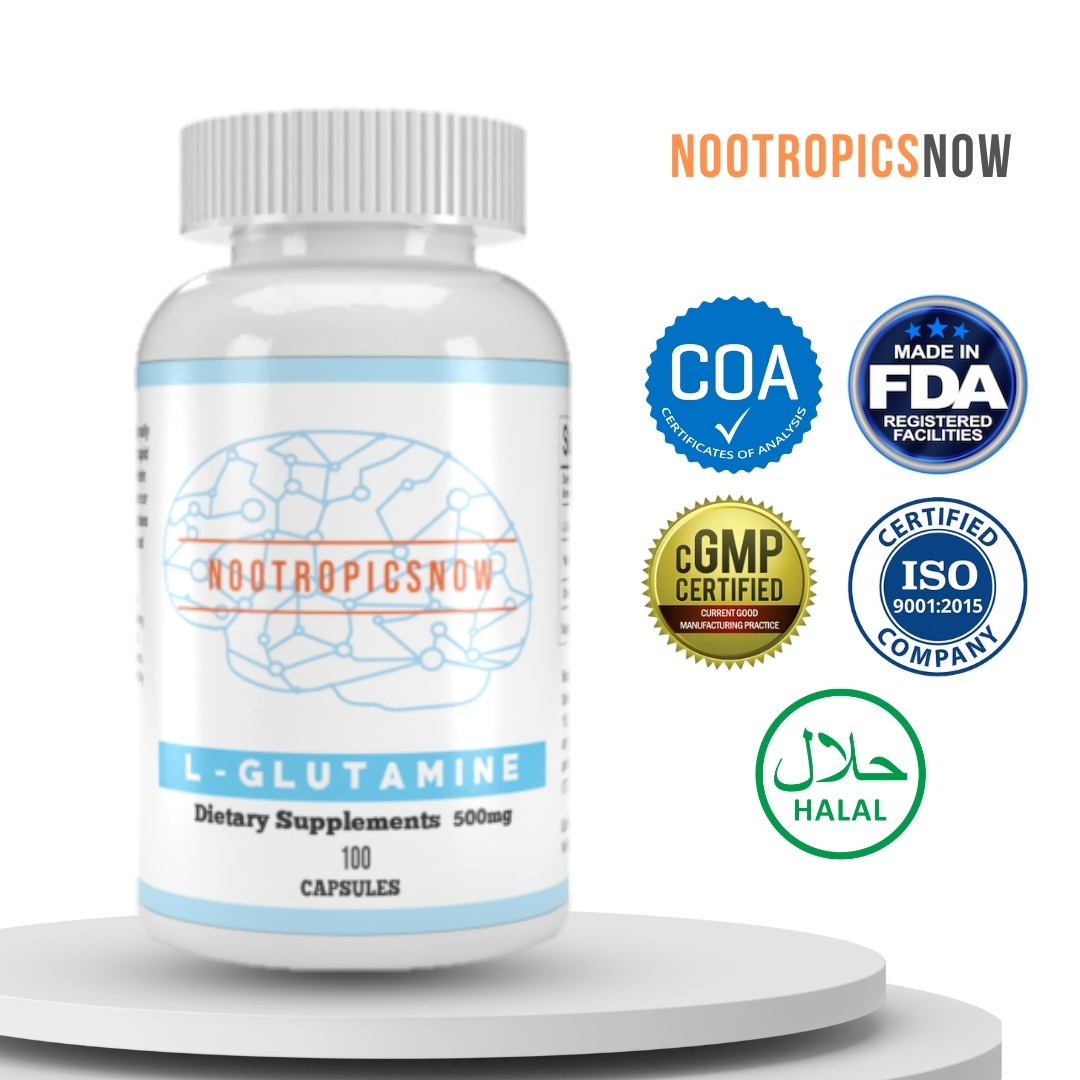Memory Enhancing Drugs: Do They Work?

`markdown
Memory Enhancing Drugs: A Comprehensive Overview
Memory enhancing drugs, frequently referred to as nootropics or cognitive enhancers, are substances that aim to improve cognitive functions. These functions encompass memory, attention span, learning capabilities, and overall mental acuity. These drugs operate through a variety of mechanisms and exhibit varying degrees of efficacy. Furthermore, the market offers diverse types of memory enhancing drugs, each with distinct properties.
Types of Memory Enhancing Drugs

Memory enhancing drugs can be broadly classified into several categories, including central nervous system (CNS) stimulants, racetams, cholinergics, cholinesterase inhibitors, and other miscellaneous nootropics. Each category functions through different mechanisms and offers specific cognitive benefits.
1. Central Nervous System (CNS) Stimulants
CNS stimulants increase neuronal activity in the brain, leading to heightened alertness, focus, and cognitive processing speed. While these drugs can enhance cognitive function, it is essential to use them responsibly due to potential side effects and risks.
Amphetamine
Amphetamine is a potent CNS stimulant that has demonstrated cognitive enhancement effects in various studies. Low doses of amphetamine can improve several cognitive functions. For instance, it improves inhibitory control, which is the ability to suppress impulsive responses. Amphetamine also positively impacts episodic memory, which concerns the recollection of past events. Working memory, the ability to hold and manipulate information in mind, also benefits from amphetamine. Moreover, it improves various aspects of attention, such as sustained attention and selective attention.
Studies have also highlighted amphetamine’s role in memory consolidation, a process by which memories are stabilized and stored. Furthermore, it enhances task saliency, which refers to the brain’s ability to prioritize relevant information. A study indicated that non-ADHD youth experienced these benefits.
Caffeine
Caffeine, a widely consumed CNS stimulant, increases alertness and attentional performance. Caffeine primarily functions by blocking adenosine receptors in the brain, which normally promote relaxation and sleepiness. By blocking these receptors, caffeine prevents adenosine from exerting its effects. This results in a sense of heightened alertness and reduced fatigue.

View Product
A meta-analysis of multiple studies confirmed the positive effects of caffeine on alertness and attention. However, it’s worth noting that the effects of caffeine can vary significantly among individuals. This variation depends on factors like tolerance, dosage, and individual sensitivity.
Eugeroics (Modafinil)
Modafinil is a eugeroic, or wakefulness-promoting agent, commonly used to treat narcolepsy and other sleep disorders. It has also gained popularity as a cognitive enhancer among individuals seeking to improve alertness and focus. Modafinil primarily functions by increasing levels of certain neurotransmitters in the brain. These include dopamine, norepinephrine, and histamine. These neurotransmitters play crucial roles in regulating wakefulness, attention, and cognitive function.
Research indicates that Modafinil can significantly increase alertness, especially in sleep-deprived individuals. The drug can also enhance reasoning and problem-solving skills. A study involving non-ADHD youth found improvements in these cognitive areas. However, the same study noted that Modafinil does not improve mood or motivation. This remains true for both sleep-deprived and non-sleep-deprived individuals.
Methylphenidate
Methylphenidate, commonly known as Ritalin, is a CNS stimulant used to treat ADHD. While primarily prescribed for ADHD, it has also been studied for its potential cognitive-enhancing effects in healthy individuals.
Methylphenidate may improve working memory, episodic memory, and inhibitory control. Moreover, it may positively affect various aspects of attention. However, it is essential to note that high doses of methylphenidate can decrease learning. Therefore, individuals must use it judiciously.
Nicotine
Nicotine, a stimulant found in tobacco products, has been associated with improved alertness, attention, memory, and motor performance. Nicotine primarily exerts its effects by binding to nicotinic acetylcholine receptors in the brain. This binding leads to the release of various neurotransmitters, including acetylcholine, dopamine, and norepinephrine. These neurotransmitters influence cognitive function, mood, and motor control.
However, a 2020 systematic review has raised concerns about potential conflicts of interest in nicotine research. Many studies have received funding from the tobacco industry. This funding may introduce bias into the research findings. As such, it is essential to interpret results cautiously.
2. Racetams
Racetams are a class of synthetic compounds often marketed as cognitive enhancers. Common racetams include piracetam, oxiracetam, phenylpiracetam, and aniracetam.
Mechanisms of Action
The exact mechanisms of action of racetams are still not fully understood. Piracetam and aniracetam appear to act as positive allosteric modulators of AMPA receptors. AMPA receptors are glutamate receptors involved in synaptic plasticity and learning. They also modulate cholinergic systems, which are crucial for cognitive function.
Effectiveness
The effectiveness of racetams in humans remains a topic of debate. Studies have produced mixed results. Racetams are not consistently found to enhance cognition in all studies. Some individuals report cognitive benefits, while others experience no noticeable effects.
3. Cholinergics
Cholinergics are substances that enhance the activity of the neurotransmitter acetylcholine in the brain. Acetylcholine plays a vital role in memory, learning, and other cognitive processes.
Alpha-GPC
Alpha-GPC is a choline-containing compound involved in the synthesis of acetylcholine. It has been studied alongside other cognitive enhancers like caffeine. Alpha-GPC provides choline, which the brain uses to produce acetylcholine. This can lead to improved cognitive functions.

View Product
Choline Bitartrate
Choline bitartrate is another source of choline, but a meta-analysis has found it ineffective at improving any measure of cognitive performance. The reasons for its ineffectiveness are unclear, but it may relate to its bioavailability or the specific form of choline.
Citicoline
Citicoline, consisting of choline and cytidine, has demonstrated potential for improving memory and learning. This is particularly true in older people with mild cognitive decline and those recovering from a stroke. Citicoline provides both choline and cytidine, which supports neuronal health and acetylcholine production.
4. Cholinesterase Inhibitors
Cholinesterase inhibitors are medications that increase acetylcholine levels in the brain by inhibiting the enzyme cholinesterase. Cholinesterase normally breaks down acetylcholine. These medications are commonly used to treat mild to moderate Alzheimer’s disease and other neurodegenerative conditions.
Donepezil, Rivastigmine, and Galantamine
Common examples of cholinesterase inhibitors include donepezil, rivastigmine, and galantamine. By increasing acetylcholine levels, these medications can improve memory, attention, and overall cognitive function in individuals with cognitive impairment.
Memantine
Memantine functions by blocking the activity of glutamate, a neurotransmitter involved in memory and learning. It is often prescribed alongside cholinesterase inhibitors to provide a comprehensive approach to treating cognitive impairment associated with conditions like Alzheimer’s disease.
5. Other Nootropics
Besides the categories mentioned above, several other nootropics are explored for their potential cognitive-enhancing effects. These include meclofenoxate and Noopept, each with its mechanisms and benefits.
Meclofenoxate
Meclofenoxate enhances cognitive function by increasing choline levels in the central nervous system (CNS) and acetylcholine levels in the hippocampus. The hippocampus is a brain region vital for memory. By increasing acetylcholine levels, it improves memory and reduces neuronal damage. Meclofenoxate has been tested for treating Alzheimer’s disease and vascular dementia, with a daily dose ranging from 500 to 2000 mg.
Noopept
Noopept is a synthetic nootropic that speeds up memory formation and retrieval. It does this by boosting brain-derived neurotrophic factor (BDNF) levels. BDNF promotes the growth of brain cells and enhances synaptic plasticity. Noopept has shown promise in treating brain injuries. However, more human-based research is required to validate its use as a nootropic in healthy adults.

View Product
Important Considerations
Using memory enhancing drugs, especially nootropics, requires careful consideration and caution. Here are some key points to keep in mind:
Conclusion
Memory enhancing drugs offer diverse options for improving cognitive functions, ranging from CNS stimulants to cholinergics and other nootropics. Some, like modafinil and meclofenoxate, have demonstrated promising results in clinical studies, while others require further research. It is essential to approach these substances cautiously and under the guidance of a healthcare provider. Furthermore, combine their use with healthy lifestyle habits to maximize cognitive benefits and minimize risks.
References
The Science Behind Memory Enhancement
Memory enhancement, a pursuit as old as humanity itself, has evolved from ancient mnemonic techniques to modern pharmacological interventions. Understanding the intricate biological processes underpinning memory formation and retrieval is crucial for evaluating the efficacy and safety of memory-enhancing drugs. The human brain, a complex network of billions of neurons, relies on synaptic plasticity – the ability of synapses to strengthen or weaken over time – as the fundamental mechanism for learning and memory.
Neurotransmitters and Memory
Neurotransmitters, chemical messengers that transmit signals between neurons, play pivotal roles in various stages of memory processing. Acetylcholine, glutamate, dopamine, serotonin, and norepinephrine are among the key neurotransmitters implicated in cognitive functions.
Brain Regions Involved in Memory
Specific brain regions are specialized for different types of memory:
The Molecular Basis of Memory
At the molecular level, memory formation involves complex signaling cascades that regulate gene expression and protein synthesis. Brain-derived neurotrophic factor (BDNF), a protein that promotes the growth and survival of neurons, plays a crucial role in synaptic plasticity and memory consolidation. Nootropics that increase BDNF levels are believed to enhance cognitive function.

View Product
The Regulatory Landscape of Memory Enhancers
The regulatory landscape surrounding memory enhancers varies significantly across countries and regions. In some jurisdictions, nootropics are classified as dietary supplements and are subject to less stringent regulations than prescription drugs. In others, they are regulated as pharmaceuticals and require a prescription for legal use. Understanding the legal status of memory enhancers is essential for consumers and healthcare professionals.
Prescription vs. Over-the-Counter
Some memory enhancers, such as cholinesterase inhibitors and memantine, are prescription drugs approved for treating specific medical conditions like Alzheimer’s disease. These drugs undergo rigorous clinical trials to establish their safety and efficacy. Others, like caffeine and certain herbal supplements, are available over-the-counter and are subject to less stringent regulatory oversight.
Regulatory Agencies
Regulatory agencies like the Food and Drug Administration (FDA) in the United States and the European Medicines Agency (EMA) in Europe play a crucial role in ensuring the safety and efficacy of drugs and supplements. These agencies set standards for manufacturing, labeling, and advertising, and they monitor the market for adverse events.
Legal Status in the Philippines
The legal status of memory enhancers in the Philippines is complex and depends on the specific substance. Modafinil, for example, is a prescription drug in many countries, including the Philippines. This means that it can only be legally obtained with a valid prescription from a licensed physician. Online pharmacies that sell Modafinil without a prescription may be operating illegally, and consumers should exercise caution when purchasing drugs from these sources. Dietary supplements, on the other hand, are subject to less stringent regulations and are widely available over-the-counter.
Potential Risks and Side Effects
While memory enhancers can offer cognitive benefits, they also carry potential risks and side effects. Understanding these risks is crucial for making informed decisions about their use.
Common Side Effects
Common side effects of memory enhancers include headaches, nausea, anxiety, insomnia, and gastrointestinal disturbances. These side effects are generally mild and transient, but they can be bothersome for some individuals.
Serious Adverse Events
In rare cases, memory enhancers can cause more serious adverse events, such as cardiovascular problems, psychiatric symptoms, and liver damage. It is essential to consult with a healthcare professional before using memory enhancers, especially if you have pre-existing medical conditions or are taking other medications.
Drug Interactions
Memory enhancers can interact with other drugs, potentially leading to adverse effects. For example, stimulants like caffeine and amphetamine can increase the risk of cardiovascular problems when combined with other medications that affect heart rate and blood pressure.
Long-Term Effects
The long-term effects of memory enhancers are not fully understood. Some concerns have been raised about the potential for tolerance, dependence, and neurotoxicity with chronic use. More research is needed to determine the long-term safety of these substances.
Ethical Considerations
The use of memory enhancers raises several ethical considerations, particularly in the context of academic performance and professional achievement.
Fairness and Equity
The use of memory enhancers may create an unfair advantage for individuals who have access to these substances compared to those who do not. This raises concerns about equity in education and the workplace.
Coercion and Pressure
Students and employees may feel pressured to use memory enhancers to keep up with their peers or meet performance expectations. This can undermine autonomy and create a culture of performance enhancement that is detrimental to well-being.
Authenticity and Integrity
The use of memory enhancers may compromise authenticity and integrity by artificially boosting cognitive performance. This raises questions about the value of achievements obtained through pharmacological means.
Cognitive Liberty
Some argue that individuals have a right to cognitive liberty, the freedom to alter their mental states through any means, including memory enhancers. However, this right must be balanced against the potential risks and ethical concerns associated with the use of these substances.
Future Directions in Memory Enhancement
The field of memory enhancement is rapidly evolving, with new research emerging on the mechanisms of action and potential therapeutic applications of nootropics. Future directions in this field include:
Targeted Drug Delivery
Developing targeted drug delivery systems that can selectively deliver memory enhancers to specific brain regions could minimize side effects and maximize efficacy.
Personalized Medicine
Tailoring nootropic regimens to individual genetic profiles and cognitive needs could optimize treatment outcomes and reduce the risk of adverse events.
Non-Pharmacological Interventions
Exploring non-pharmacological interventions like cognitive training, mindfulness meditation, and transcranial magnetic stimulation (TMS) as alternative or complementary approaches to memory enhancement.
Biomarker Identification
Identifying biomarkers that can predict individual responses to memory enhancers could help clinicians select the most appropriate treatments and monitor their effectiveness.
Research on Natural Nootropics
Increasing research on natural nootropics, such as herbal extracts and dietary supplements, could lead to the discovery of safe and effective cognitive enhancers with minimal side effects.

View Product



